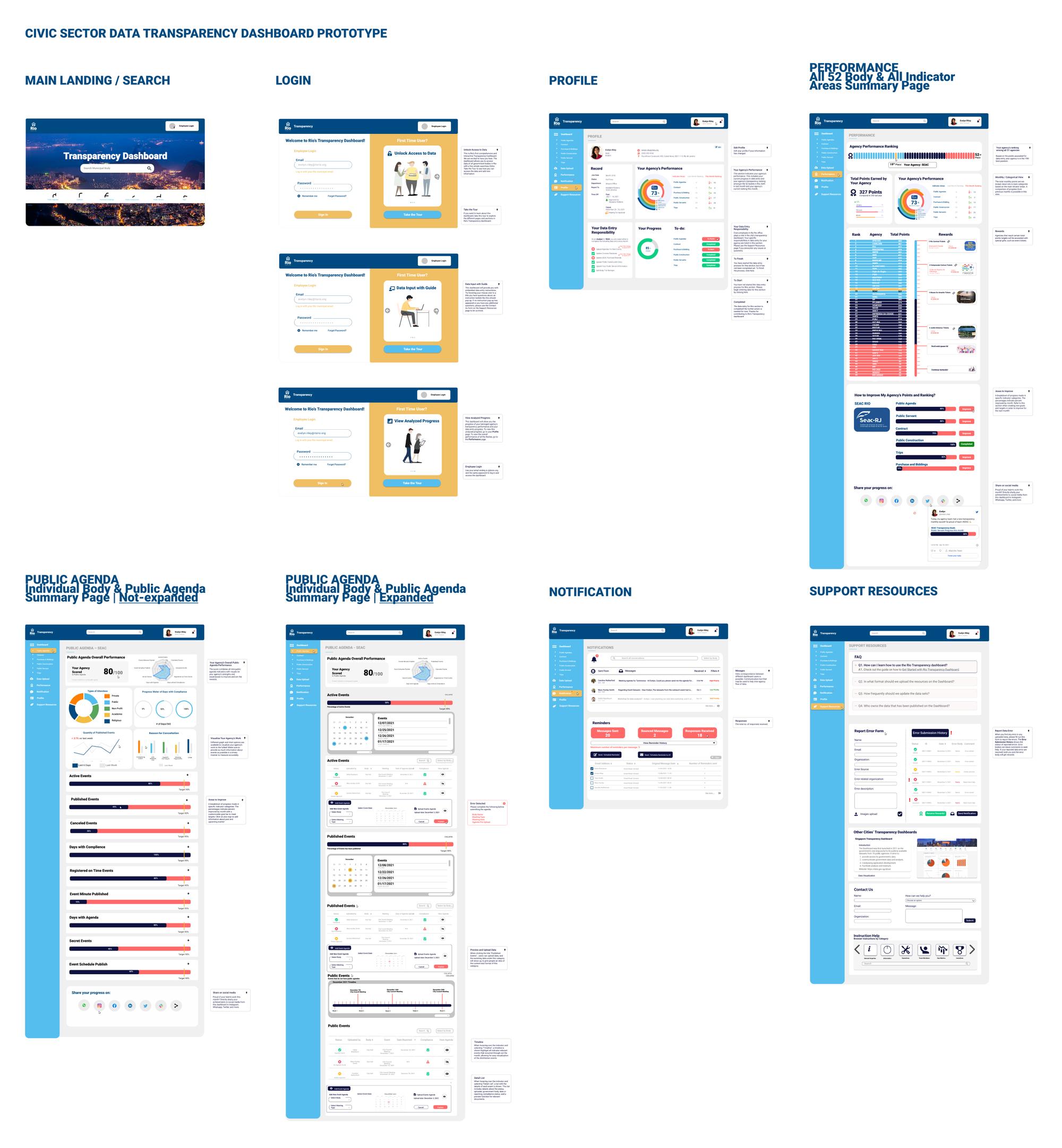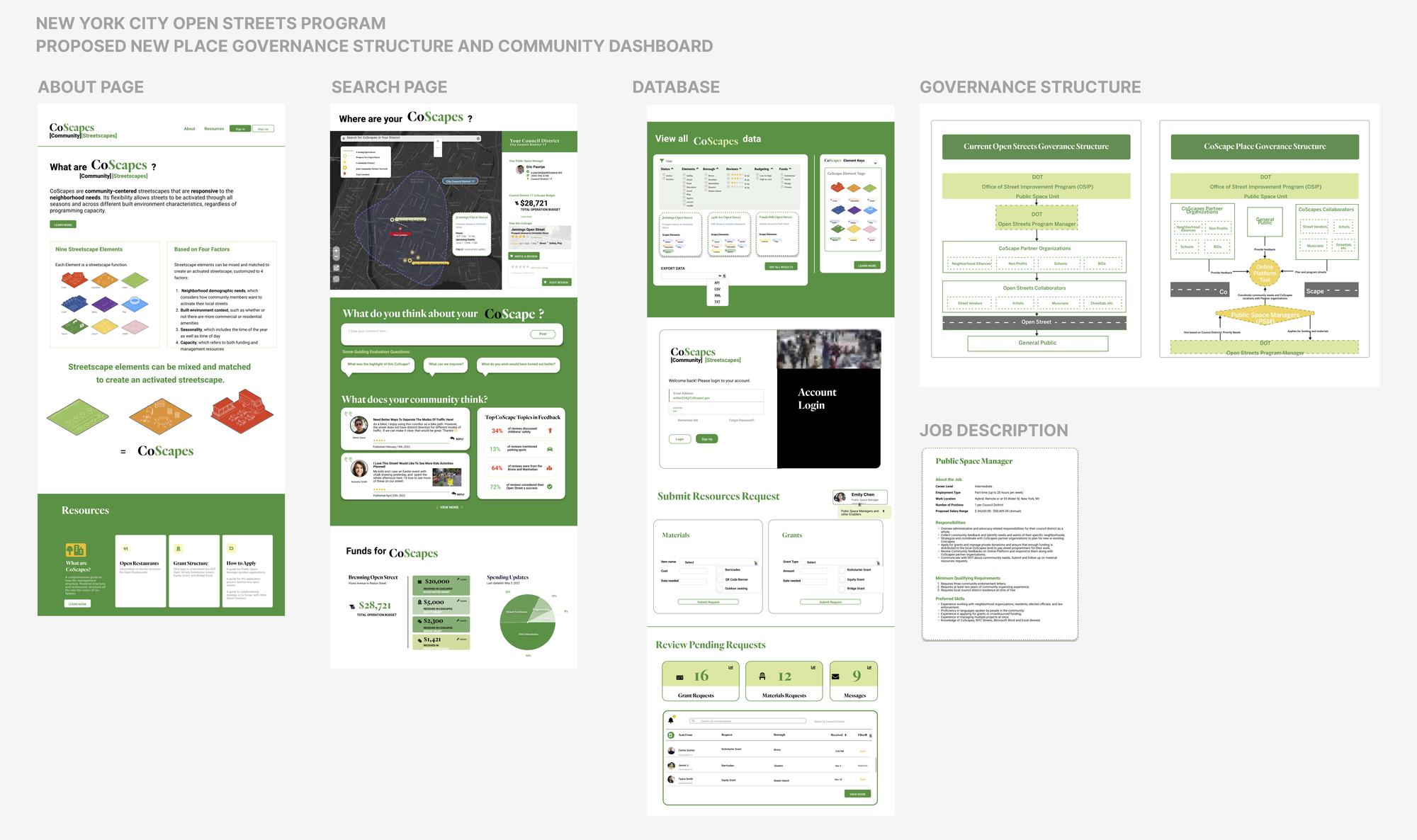tag: UX AND HUMAN-CENTERED DESIGN
NEW YORK CITY OPEN STREETS PLATFORM AND GOVERNANCE STRUCTURECLIENT: NEW YORK CITY DEPARTMENT OF TRANSPORTATION (DOT)
COLUMBIA UNIVERSITY, GRADUATE SCHOOL OF ARCHITECTURE, PLANNING, AND PRESERVATION
COLUMBIA UNIVERSITY, GRADUATE SCHOOL OF ARCHITECTURE, PLANNING, AND PRESERVATION
Team: Tomas Carrillo, Hilary Ho, HaoChe Hung, Candice Ji, Jim Lammers, Fukunda Mbaru, Jillian Solomon, Kevin Tang, Varisa Tanti, Sofia Vala, Mia Winther-Tamaki, Theresa Yang
This project was a four-month long urban planning studio. Our clients were the Office of Street Improvement Programs (OSIP) at the New York City Department of Transportation. After the Covid-19 pandemic, Open Streets and Open Restaurants became critical extentions of public space for the city. While they have provided a means of social connection during the pandemic, they have also created fault lines between the people that benefit from the programs and the people who don’t.Our team underwent a robust community engagement process that involved interviews, surveys, and community workshops to identify and develop a set of final recommendations four our client. Recommendations included a funding-grant structure, place-governance structure, a data dashboard, a modular "co-scapes" design tool, and updated open restaurants model.
My role consisted of using Figma to design a user interface for Open Streets volunteers, community members, DOT staff, and place managers to access information about Open Street hours, programming, and other data.
My role consisted of using Figma to design a user interface for Open Streets volunteers, community members, DOT staff, and place managers to access information about Open Street hours, programming, and other data.
------
CIVIC SECTOR DATA TRANSPARENCY DASHBOARD PROTOTYPE

HUMAN-CENTERED DECISION MAKING
COLUMBIA UNIVERSITY, GRADUATE SCHOOL OF ARCHITECTURE, PLANNING, AND PRESERVATION
CLIENT: INSTITUTE OF TECHNOLOGY AND SOCIETY RIO (ITS RIO)
ADVISOR: ANDRE CORREA D’ALMEIDA
Team: Tamim Abedin, Alan Jidong Cai, Jianwen Du, Candice Siyun Ji, Dmitri Armand Johnson, Aria Ziwei Ling, Eve Passman, Gadha Raj, Sreenidhi Rao, Sebastian Salas, and Mia Winther-Tamaki
This project represents a concerted three-month long effort to equip Rio de Janeiro’s government with the practical technological tools to foster a culture of transparency in their government. This consisted of consultation with the Institute of Technology and Society of Rio de Janeiro (ITS Rio), interviews with key stakeholders, robust analysis of Rio’s cultural context, and case study reviews. We developed a prototype of a user-centric product built for interoperable data flows to be used by civil servants of the Rio municipality. The platform prioritized the simplification of data collection and sharing of agency-wide information sharing. The dashboard provides interactive incentivization and transparency tools to foster better agency-wide decision making. Final deliverables also included a detailed implementation strategy and designed a user guide to ensure successful deployment.
